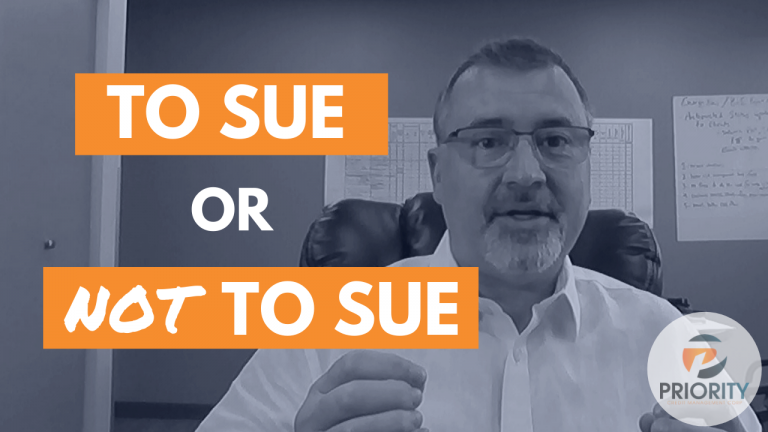As any accounts receivable/credit professional knows, back-up documentation is a huge factor in determining successful collections.
As PCMs Production Manager, I can say without a doubt that the clients who provide us with solid backup enjoy much more recovery success than clients where it is difficult for us to justify the debt and fully understand the situation due to a lack of information.
Essentially, back-up is any information that will help us to collect. Not only does proper backup allows us to justify the debt owed legally, but it also helps us tremendously in our recovery efforts. The more we know about your customer and the situation, the better our chances of helping you recover your funds. Think more IS more.
Examples of useful backup
- Credit applications
- Contracts
- Invoices
- Statements
- Email communications
- Copies of letters
- Purchase orders
- Work/Service orders
- Proof of Deliveries
In short, information = POWER.
Further, while all forms of back-up are helpful, probably the most important document a business can provide is the credit agreement.
So what’s the big deal about a credit application anyway?
As a "Certified Credit Geek,” and as anyone who has worked with me knows – I am HUGE on credit agreements.
When I was a Credit Manager, I always wondered how some people could bring on new customers without a proper credit application. How could they be so trusting? We wouldn’t trust a random stranger with our personal money; why would we trust a stranger in business? We need to ask ourselves if we know enough about "X" to risk giving our money away; because every time you extend credit to a business, that is more or less what you are doing.
Yeah, asking for a credit application can be difficult sometimes. Having said that, if getting a credit application from a potential client is difficult, all sorts of warning bells should be going off. More on that later.
Reasons why the Credit Application is an important risk management tool:
Reason #1: You know exactly who you are dealing with: A credit application clearly identifies your potential client's name/legal entity. You would be surprised how many accounting systems have incorrect client information. This happens when billing information does not match credit application information or the credit application information is outdated.
Reason #2: Identifies ownership so you can make sure you are talking to the right people. And yes, while it is not desirable to have to litigate, this information is necessary if a creditor chooses to sue to recover money owed to them.
Reason #4: Clearly defines the business relationship: The credit agreement often contains the only terms and conditions between the creditor and customer.
Reason #5: Allows you, the Credit Grantor, to do a credit investigation to determine creditworthiness
Reason #6: Allows you to report delinquent accounts to credit bureaus
Reason #7: If the proper language is used, you will have the ability to hold the individual (owner) personally liable for the corporate debt in the event of insolvency
Reason #8: Offers legal protection, i.e. prevents account assignment to third parties
Reason #9: Allows creditor to choose legal jurisdiction in the event of litigation
Reason #10: Can address interest fees/service fees, legal and recovery fees, NSF policies, return policies, etc.
Now that we have gone through so many reasons why it is good to use a credit agreement let’s look at why some people don’t like filling them out.
Here are some common objections/excuses I have heard over the years:
“That is private information.”
Yeah, that is why I am politely asking you for it. If I knew this information already, which I require to make an informed business decision, I wouldn’t need this credit application completed.
“It is too complicated.”
Hmmm, sorry not buying it. This is a form that requests very basic information about your business.
“I am too busy.”
Really? It is like 2 pages. Nobody is that busy.
“I don’t fill out these types of documents.”
Yes, you do. If you have a bank account, a mortgage, or a loan, you have completed a similar document.
“I don’t have to give you that information.”
You are absolutely right - just like we do not have to extend credit.
You can tell that I don’t have a lot of patience for these excuses.
The truth is: These responses make me immediately feel distrustful of the situation. If we pick these responses apart, the common theme is a reluctance to provide you with the information you seek.
Always ask yourself why someone would want to hide information from you. Whatever the reason, it will not be a good one.
As Brad Lohner likes to say, Sure, surprises can be great... on your birthday :). But surprises with your receivables are NOT good.
Know who you are dealing with!
Want a recommendation on your credit applications or credit policy? Feel free to reach out to the PCM team at any time. We would love to connect!





